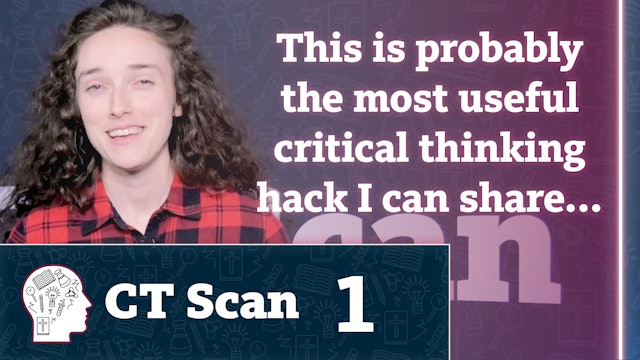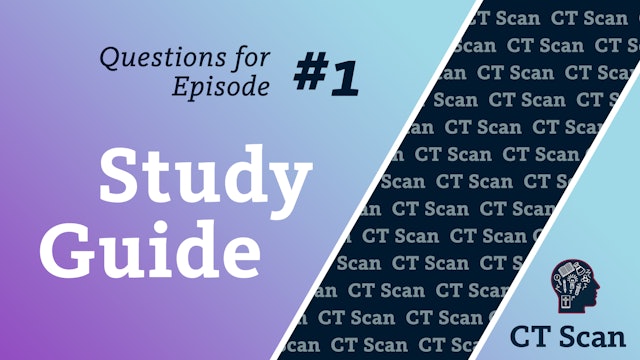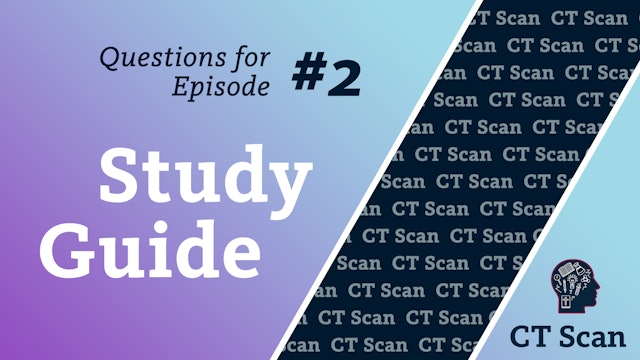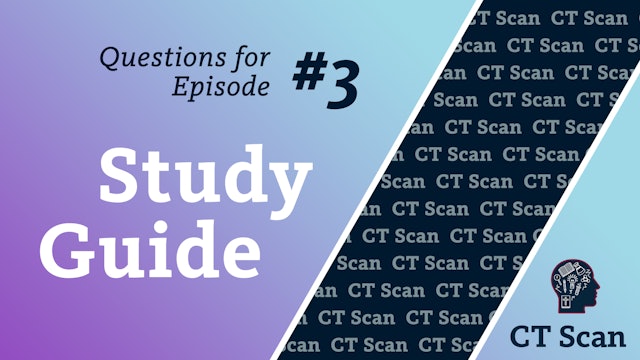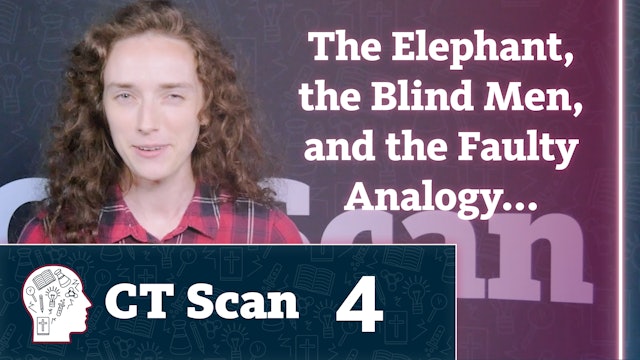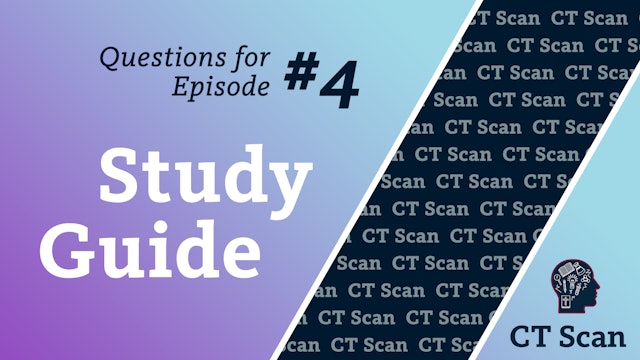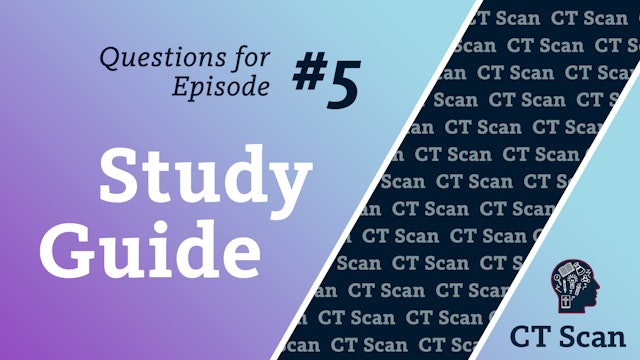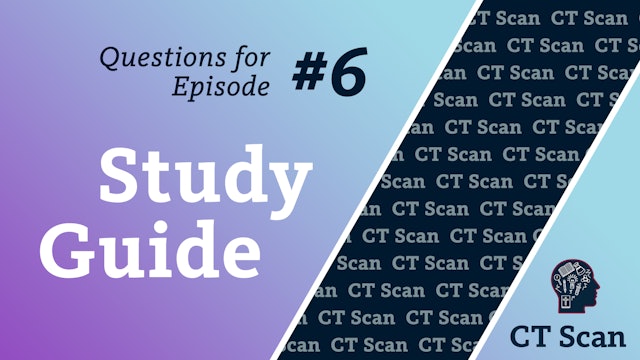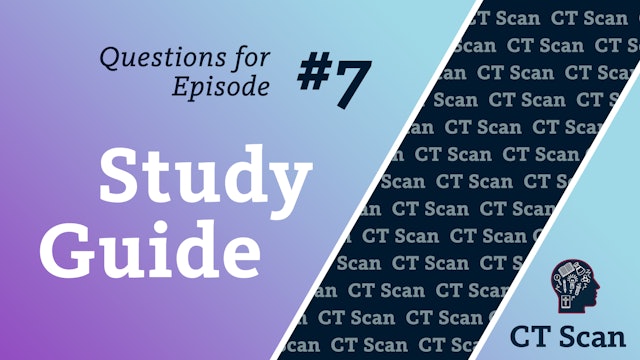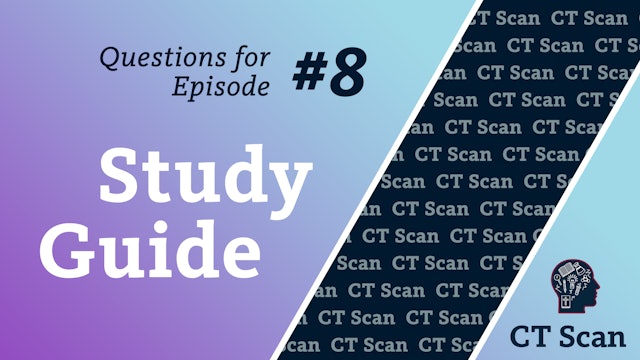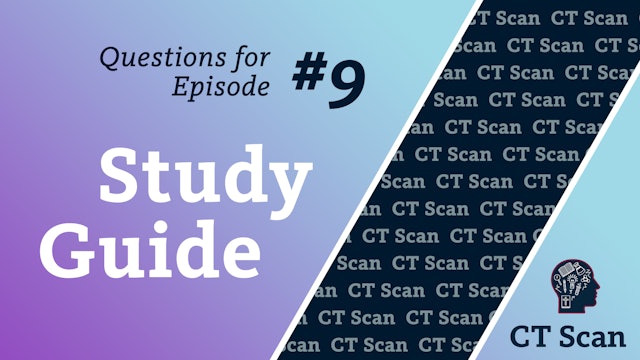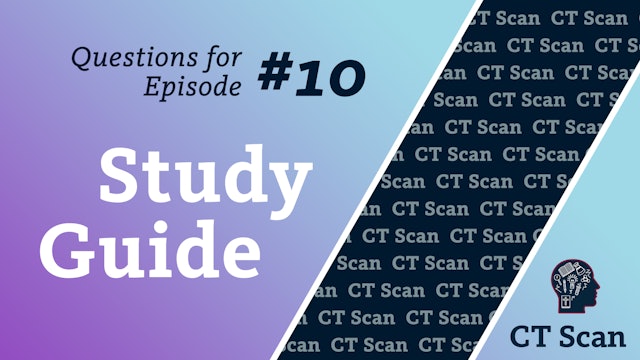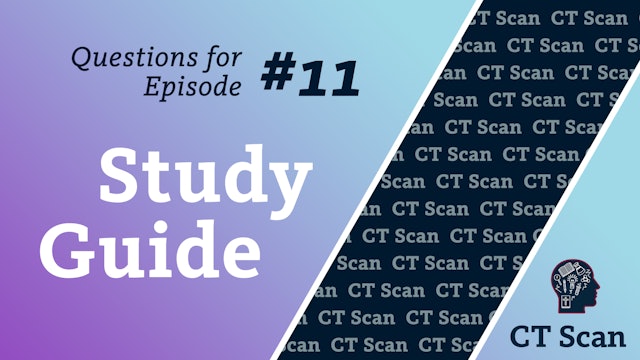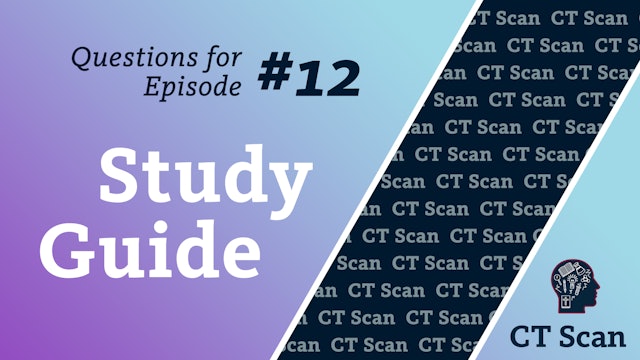-
Catch Countless Fallacies with 1 Critical Thinking Hack
Episode 1
Arguments that persuade by propagandaoften use fallacies of irrelevant premises. There's a long list of these fallacies, but one critical thinking hack can help you catch any of them. Just ask: Is this message true or false because‚ Because many people believe it? Because someone famous said so? ...
-
Handout 1 - Catch Countless Fallacies with 1 Critical Thinking Hack
167 KB
-
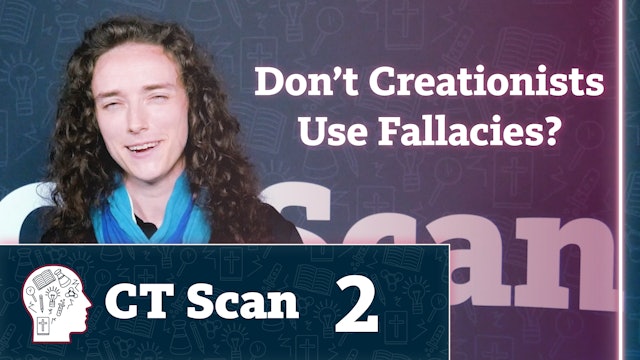 04:58Episode 2
04:58Episode 2Don't Creationists Use Fallacies?
Episode 2
Textbooks may accuse biblical creationists of using logical fallacies to defend their beliefs. It's possible to use bad logic to argue for something true, so calling a message false because someone uses fallacies to defend itis a fallacy. Still, bad logic lowers apparent credibility. To learn how...
-
Handout 2 - Don’t Creationists Use Fallacies?
169 KB
-
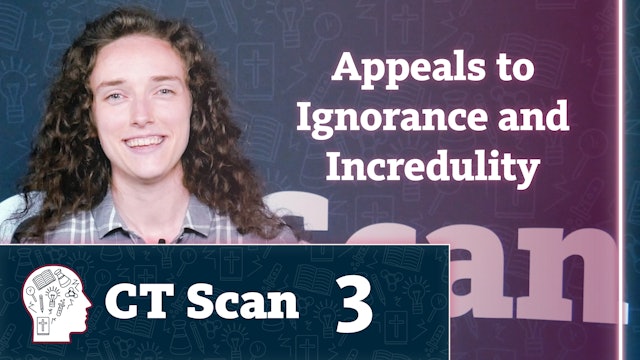 04:49Episode 3
04:49Episode 3Appeals to Ignorance and Incredulity
Episode 3
Claiming that something must be true because there's no evidence to say otherwise is a logical fallacy called Appeal to Ignorance. Another version of this fallacy is the Argument from Incredulity, which suggests something must be false because it's hard to imagine being true. Here's how to recogn...
-
Handout 3 - Appeals to Ignorance and Incredulity
167 KB
-
The Elephant, the Blind Men, and the Faulty Analogy
Episode 4
Analogies can make arguments sound persuasive, but they can't prove anything is true. Tips for answering analogies that argue against the Bible include finding an important difference between the things being compared and using big-picture questions to make the analogy argue for a biblical worldv...
-
Handout 4 - The Elephant, the Blind Men, and the Faulty Analogy
155 KB
-
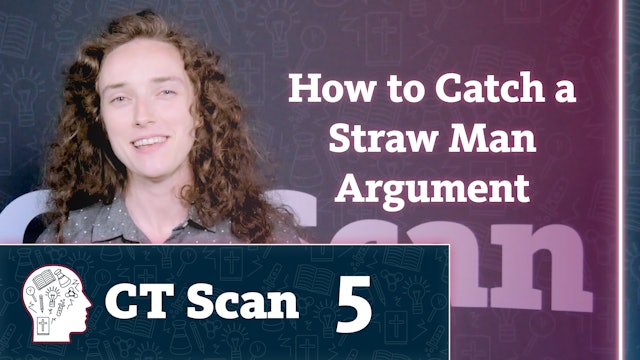 04:39Episode 5
04:39Episode 5Answering Straw-Man Arguments
Episode 5
Straw-man fallacies re-frame strong positions as weak ones, while motte-and-bailey fallacies re-frame weak positions as a strong ones. In both cases, you can respond by bringing the discussion back to what the original position said.
-
Handout 5 - Answering Straw-Man Arguments
182 KB
-
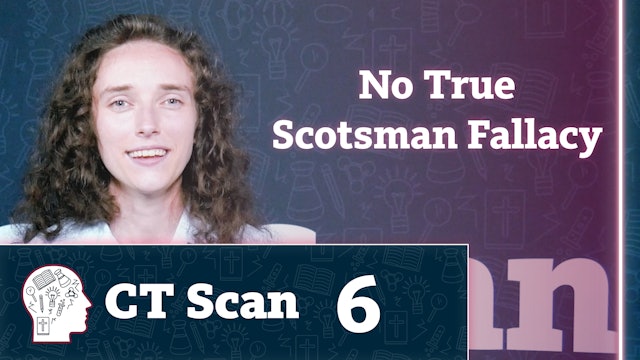 05:03Episode 6
05:03Episode 6No True Scotsman Fallacy
Episode 6
No True Scotsman arguments say that no real member of some group would do something; for instance, no true scientist would reject evolution. These arguments become fallacies when they redefine a key termlike what it means to be a scientistto avoid counterarguments. Here are some examples of how t...
-
Handout 6 - No True Scotsman Fallacy
182 KB
-
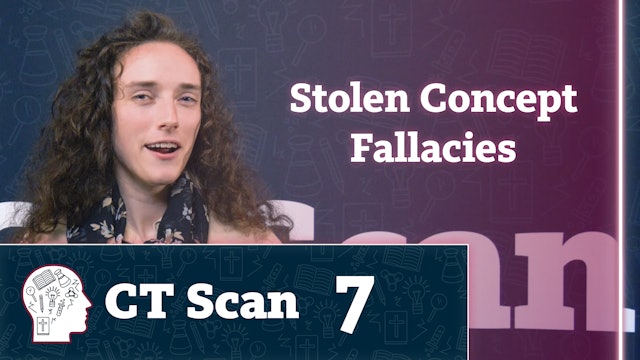 05:19Episode 7
05:19Episode 7Stolen Concept Fallacies
Episode 7
Arguments with stolen concept fallacies assume the truth of the same thing they're trying to disprove. For example, many arguments against Scripture rely on principles which are ultimately rooted in a Biblical worldview, including truth, logic, knowledge, scientific reasoning, morality and the va...
-
Handout 7 - Stolen Concept Fallacies
196 KB
-
 05:15Episode 8
05:15Episode 8Asking Big Picture Questions
Episode 8
By asking big-picture questions, you can gently and respectfully address stolen concept fallacies in arguments which try borrowing biblical concepts to criticize the Bible. A helpful way to start is asking why the argument's topic is worth raising. Let's see some examples.
-
Handout 8 - Asking Big Picture Questions
190 KB
-
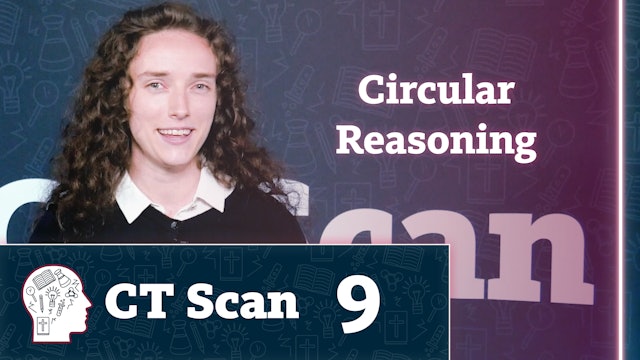 04:49Episode 9
04:49Episode 9Circular Reasoning
Episode 9
Circular reasoning is when an argument assumes what it's trying to prove. Though often considered fallacies, circular arguments aren't always illogical; they're usually just too arbitrary to be persuasive. Yet some circular reasoning is necessary for logical thinking. Here's how to detect‚ and av...
-
Handout 9 - Circular Reasoning
176 KB
-
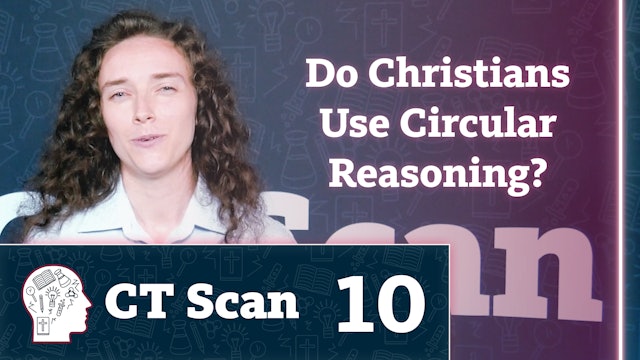 04:52Episode 10
04:52Episode 10Do Christians Use Circular Reasoning?
Episode 10
one objection to Christianity is that it's circular reasoning to say, God's Word is true because the Bible says so.‚ And left at that, this argument is indeed circular. Does that mean Christianity is founded on a fallacy? The short answer is no, but let's unpack why.
-
Handout 10 - Do Christians Use Circular Reasoning?
493 KB
-
 04:56Episode 11
04:56Episode 11Valid Conditional Arguments
Episode 11
Conditional arguments use if-then statements, like If God created humans, then all humans have value. The if is the antecedent, and the then is the consequent. Let's look at 3 valid types of conditional arguments: Affirming the Antecedent, Denying the Consequent, and Hypothetical Syllogism. By re...
-
Handout 11 - Valid Conditional Arguments
286 KB
-
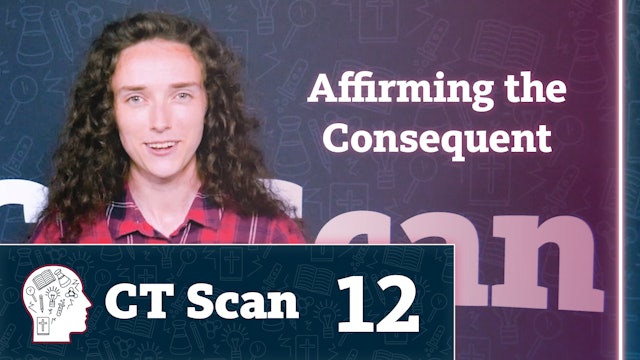 04:45Episode 12
04:45Episode 12Affirming the Consequent
Episode 12
Subtle, persuasive, and almost always illogical, Affirming the Consequent is a flawed if-then argument which argues that an if statement is true because a then statement is true. Like If your car is out of gas, it won't start. It won't start; therefore, it's out of gas. Using real evolutionary ex...
-
Handout 12 - Affirming the Consequent
257 KB



